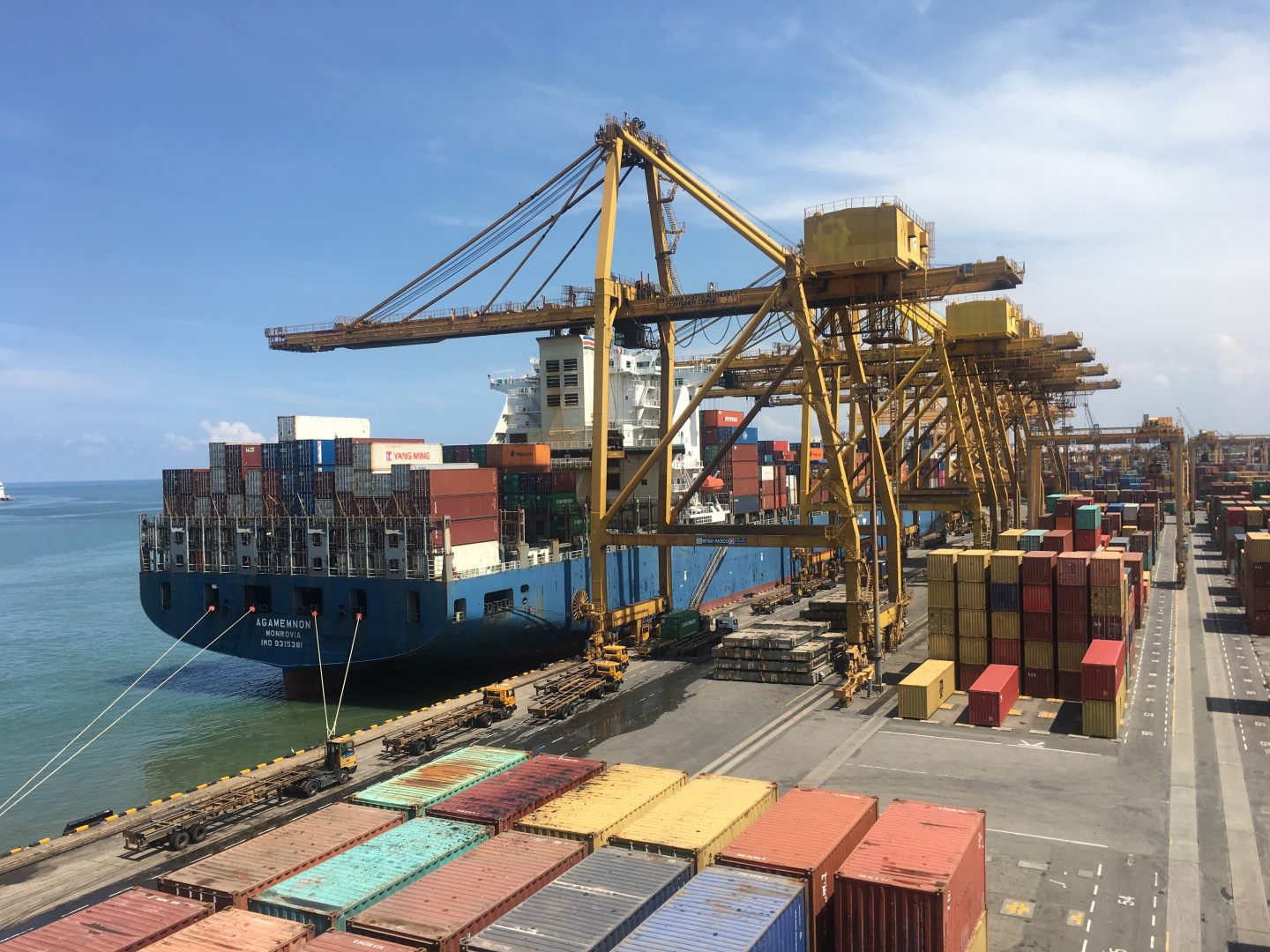
A worldwide freezing order under English law is a legal instrument that allows to freeze a defendant’s assets located across the world, and not limited to just one jurisdiction. In contrast to an arrest, a worldwide freezing order has no effect in rem, but ad personam. It may exert enforcement and good conduct pressure on internationally operating companies – for instance, by means of harsh sanctions, such as fines or exclusions from the procedure or even personal fines or arrests for directors, that can be imposed in the event of noncompliance.
However, as an instrument of national English law, the freezing order can only be enforced outside the UK if it is recognised in another country. Since that is a cumbersome exercise, the value of such a freezing order is mainly based on the effect in the UK since companies operating worldwide cannot risk to ignore the possible sanctions imposed by an English court on financial transactions in London or even travel of the defendant’s directors to the UK.
A recent decision of the Higher Regional Court of Hamburg (OLG) issued on 16th February 2022 (case no. 12 U 12/18) deals with the question how German insolvency law can deal with the effects of a worldwide freezing order, even retrospectively. And to spoil the result for impatient readers, insolvency law may even reverse the gains obtained with the help of a freezing order.
Facts of the case
In the present case, the defendant (in the German proceedings) was the owner of several seagoing vessels, the claimant was the (later appointed) insolvency administrator of the charterer of these vessels. The defendant had not received payment of charter hire for March and April 2013. Thereupon, on 23rd April 2013 the defendant applied to the English High Court of Justice for a worldwide freezing order against the (later) insolvent company to secure 445.000, – USD of assets. After consulting the parties, the worldwide freezing order has been granted. Subsequently, the parties entered into an instalment agreement.
The settlement has been confirmed by an enforceable decision of the High Court on 2nd May 2013 – as a so-called Tomlin order. In the period between the 16th May and the 4th June 2013, the debtor paid all the instalments agreed upon in the settlement (except for the last one) which accounts for a total of 350.000, – USD. On 11th June 2013, the same company filed for insolvency, on 2nd November 2013, an insolvency administrator was appointed. The defendant requested a title with respect to the unpaid instalment which has been delivered by the Court on 28th June 2013.
Once the insolvency administrator was appointed, he filed for an annulment of the agreement to pay in instalments and sought re-payment of 450.000, – USD from the defendant.
In first instance, with a judgement of 27th April 2018, the District Court of Hamburg rejected that application, but on 16th February 2022, the Higher Regional Court of Hamburg overturned the prior decision and awarded USD 450.000,00 to the insolvency administrator.
Legal context
The basis for this claim may be found in the German Insolvency Statute. The underlying ratio of insolvency law is that all creditors shall be treated equally and receive the same (usually very low) quota on their claims. If one creditor manages to secure full payment shortly before the debtor files for insolvency (or even after that date), there are legal remedies for the insolvency administrator to challenge those payments and claw them back to the insolvency estate.
In this respect, the German Insolvency Statute distinguishes between “Congruent” and “Incongruent Coverage”.
Congruent Coverage is defined under § 130 I of the Insolvency Statute (InsO) as follows:
A transaction granting or facilitating an insolvency creditor a security or satisfaction may be contested
1. if it was made during the last three months prior to the request to open insolvency proceedings, if the debtor was illiquid on the date of the transaction, and if the creditor was aware of his insolvency on this date, or
2. if it was made after the request to open insolvency proceedings, and if the creditor was aware of the debtor’s insolvency on the date of the transaction, or of the request to open insolvency proceedings.
Pursuant to § 131 I InsO, Incongruent Coverage is defined as follows:
“A transaction granting or facilitating an insolvency creditor a security or satisfaction without his entitlement to such security or satisfaction, or to the kind or date of such security or satisfaction, may be contested if such transaction was made
1. during the last month prior to the request to open insolvency proceedings or after such request;
2. within the second or third month prior to the request to open insolvency proceedings, and the debtor was illiquid on the date of the transaction;
3. within the second or third month prior to the request to open insolvency proceedings, and the creditor was aware of the disadvantage to the insolvency creditors arising from such transaction on its date.”
In this context, the insolvency administrator bears the burden of proof that the transaction made during the crisis granted or facilitated the insolvency creditor incongruent coverage.
Decision
The Court decision to favour the claimant’s request relied on the following considerations:
The payments that have been made between 16th May and 4th June 2013 fall into the critical period referred to by the regulation of § 131 I InsO, since they have been made during the last month prior to the application to open insolvency proceedings from 11th June 2013. According to the Court, the payments were detrimental to the creditors of the debtor, as they have led to the reduction of the company’s main assets (“Aktivmasse”). The Court has qualified these payments as incongruent because they granted the defendant satisfaction to the detriment of other creditors. Not only the satisfaction obtained by means of foreclosure but also by means of enforcement pressure is to be seen as incongruent. The decisive factor is whether the creditor has objectively threatened with foreclosure in the event of non-payment. In the present case, the Court has concluded that – from the relevant objectified point of view – the debtor had agreed to the Tomlin-order and had made the payments primarily because of the direct enforcement pressure resulting from the English worldwide freezing order. A measure that exerts pressure on internationally operating companies does not necessarily have to be implementable “merely” in Germany. Thus, it is insignificant that the worldwide freezing order was not enforceable in Germany. In fact, the circumstances could even suggest that the order had legal effect in Germany, increasing the coercion coming from it.
Therefore, enforcement and good conduct pressure was being exerted insofar, as the worldwide freezing order had direct legal effect in England and Wales, as it was universally valid (at least from an English Law perspective), as harsh sanctions could be imposed in the event of noncompliance and as the debtor was operating internationally. Thereby, the worldwide freezing order covered not only the assets located in England and Wales, but also assets located in foreign states. As a result of this pressure, the debtor had settled the outstanding payments of the owner/later defendant while not settling a single debt to the remaining creditors. Regarding these facts, the payments made by the debtor were a result of the pressure of international coercive instruments rather than a voluntary decision. These actions were sufficient to be classified as incongruence.
In this respect, it carries no weigh that it was not the primary aim of the worldwide freezing order to grant the defendant satisfaction before other creditors. What is important is the assessment of the accumulated pressure. Furthermore, the fact that at the time of the payments the worldwide freezing order was annulled by the English High Court on 3rd May 2013 on application of the defendant, right after agreeing on the Tomlin Order on 2nd May 2013, does not make any difference. In case of default, the Tomlin order provided that the whole amount is payable immediately and that the worldwide freezing order shall revive. Thus, the initially built-up pressure continued to have effect.
Final remark
In conclusion, a worldwide freezing order may not have the universal effect pursued by the creditor, since it may contradict German insolvency regulations. In consequence, when the worldwide freezing order is applied for in the critical period, the insolvency administrator is capable to claim the assets back from the creditor. This is a result of the principle of equal treatment of the creditors which is enshrined in the German Insolvency Statute. Therefore, it might be beneficial for internationally operating creditors to take this into consideration before applying for a worldwide freezing order – if there is any chance that the debtor may file for insolvency soon or has already done it. Otherwise, they might not only have to return the assets received from the debtor, but also, in the event of presumed legal proceedings, additional legal costs may arise for the creditor as the losing party.
The same line of argument would apply in case of arrest: In the shipping industry, it is common to seek the arrest of a vessel if due payments remain outstanding. Often, these arrests are even sought when the debtor is about or has already filed for insolvency. And since the debtor is dependent on the use of the vessel to generate further income, it is common practise that a settlement agreement is found and payments are made to release the vessel from the arrest.
Under German law, the insolvency administrator can later sue the creditor for annulment of the settlement agreement that lifted the arrest. Depending on where there creditor is located and whether or not German decisions are enforced in that jurisdiction, obtaining payments from debtors with the help of arrests or freezing orders may prove to be a Pyrrhic victory.

